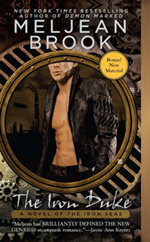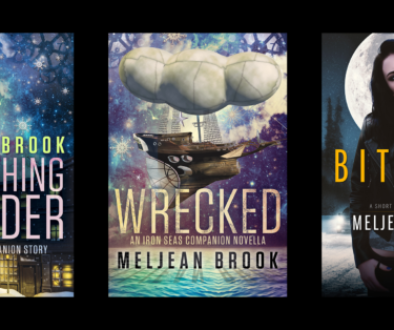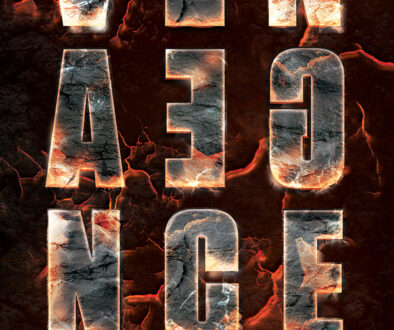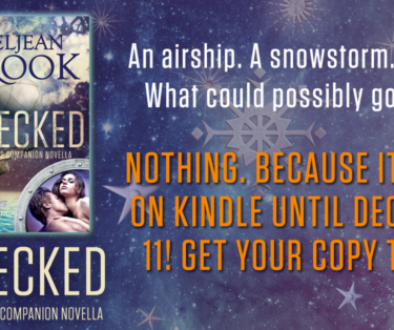I can answer that! – Using “bugger” and “shag” in The Iron Seas
 So, there’s a review of The Iron Duke up at Dear Author (it’s a fun review, you should read it) and between the review and the comments, I realized I could totally answer some of the questions being asked re: my intentions regarding the usage of certain words. But rather than go to that space and make it weird for readers (although, obviously I was lurking and checked out the comments, but hopefully this doesn’t stifle discussion) I thought it would be better to bring it over here so that if anyone DOESN’T want to interact with the author, that’s still an option.
So, there’s a review of The Iron Duke up at Dear Author (it’s a fun review, you should read it) and between the review and the comments, I realized I could totally answer some of the questions being asked re: my intentions regarding the usage of certain words. But rather than go to that space and make it weird for readers (although, obviously I was lurking and checked out the comments, but hopefully this doesn’t stifle discussion) I thought it would be better to bring it over here so that if anyone DOESN’T want to interact with the author, that’s still an option.
Plus, this might be a tl;dr answer and I didn’t want to hog the comments, either. And I thought that this might end up in spam with all the shagging and fucking anyway. So.
I understand that these explanations won’t actually make the usage any easier for readers to read without being irritated or brought out of the story, but since the question of “what was she thinking?” popped up, I might as well address it. I’m not careless with language in any way, especially when I’m worldbuilding. That doesn’t mean everyone will like how I’ve used it or agree with the choices I’ve made, but there actually are reasons behind all of them.
The use of “bugger” — this was deliberate. It keeps the sodomy usage firmly in mind, actually. This is a term that the English people (the buggers) use for themselves and it both came out of the original usage (the act of sodomy) along with the new connotation of having “bugs” in their blood.
Language is fluid, so it absolutely made sense to me that after several hundred years of having bugs in their blood, the infected English would transform the term to mean something that more literally references the nanoagents. To those people who’ve grown up under the Horde, the term has all but lost its original meaning (just as most of the stigma surrounding the act of sodomy has also been lost in certain social classes.)
The bounders (descendants of the English who fled the Horde two centuries before) still use the term “bugger” to mean sodomy (though very quietly). It’s not a usage that they are comfortable with at all, because — in general — the English who lived in the New World have a much more conservative, Victorian-ish* outlook. The term “bugger” embarrasses them; so, in turn, the people who grew up under the Horde (many of whom resent the bounders’ return) are even more determined to use it in reference to themselves.
Now, did I actually stop and consider: Should I use this word, considering what it means to my modern readers? Frankly, it made me even more determined to use it, because of the reference to sodomy. The people of England feel that the infection is something that everyone else in the world is looking at them and saying: They are dirty, they’ve been used by the Horde, they’re infected — and it’s talked about very quietly by every else in the world, as if being a bugger somehow makes them “less than.”
So, yeah. I wanted to have that connection to the original meaning.
As for “shag,” I use it as an indicator of class, and developed it into the primary word for “fucking” for a specific set of infected laborers in England, particularly anyone who has grown up in a creche. Mina’s mother would never in a million years say it. Before Mina began working as a detective inspector and began picking up language in some of the rougher areas, she never would have either — in their home, sex wouldn’t have been the taboo topic that it would have been in Manhattan City, but it would have been referred to as “relations” or something similar.
So Ivy Blacksmith (from Here There Be Monsters) says “shag.” Mad Machen (who is a bounder) prefers the use of “fuck” and thinks that “shag” is wonderfully vulgar and dirty, so he’s surprised and pretty turned on when she says it. Rhys says both with equal regularity, but prefers shag. Yasmeen only says “shag” when she wants to make a point in the same language that whoever she’s talking to is using, and Archimedes wouldn’t say it at all. Neither would David or Annika from Riveted.
Again, I realize it’s jarring for some readers and that many can’t get past the usage (especially if they are familiar with the use in other contexts). But I like to have language markers as part of the worldbuilding, and I chose that as one of them. That won’t change through the series — but whether the words are used in the books depends wholly upon the characters, so it won’t necessarily be a common thing.
And that’s why I used “shag” and “bugger” a lot in that book (and in Mina Wentworth and the Invisible City.)
*though of course, not really Victorian, because there has never been a Queen Victoria.



